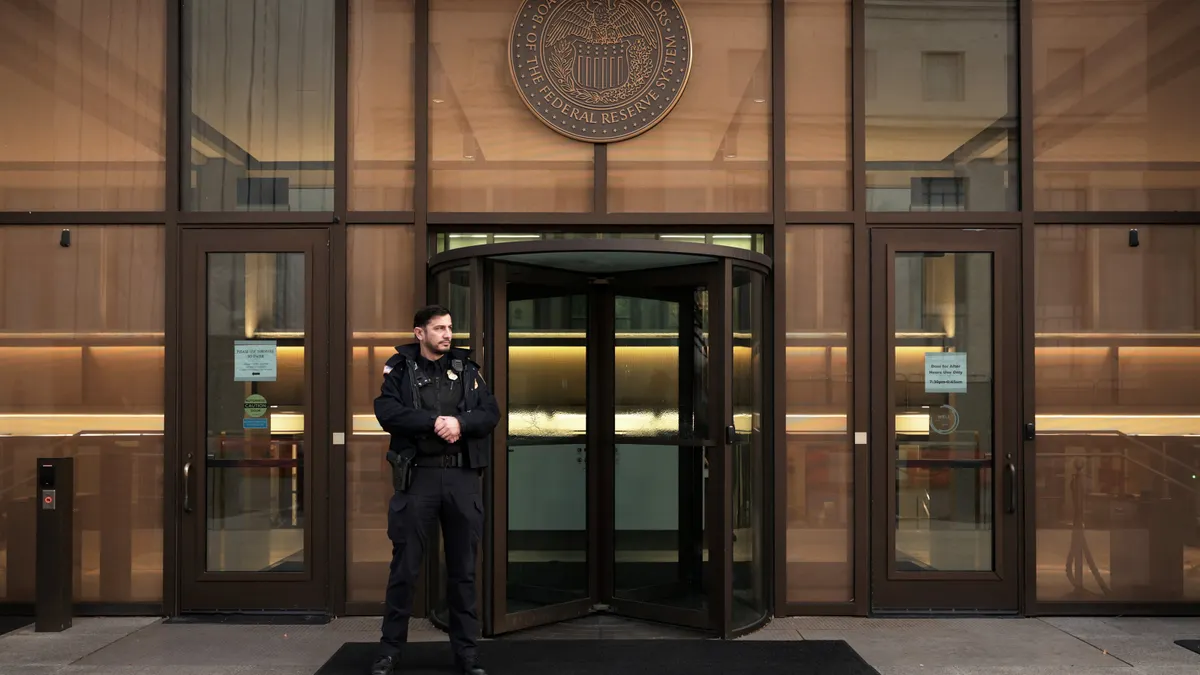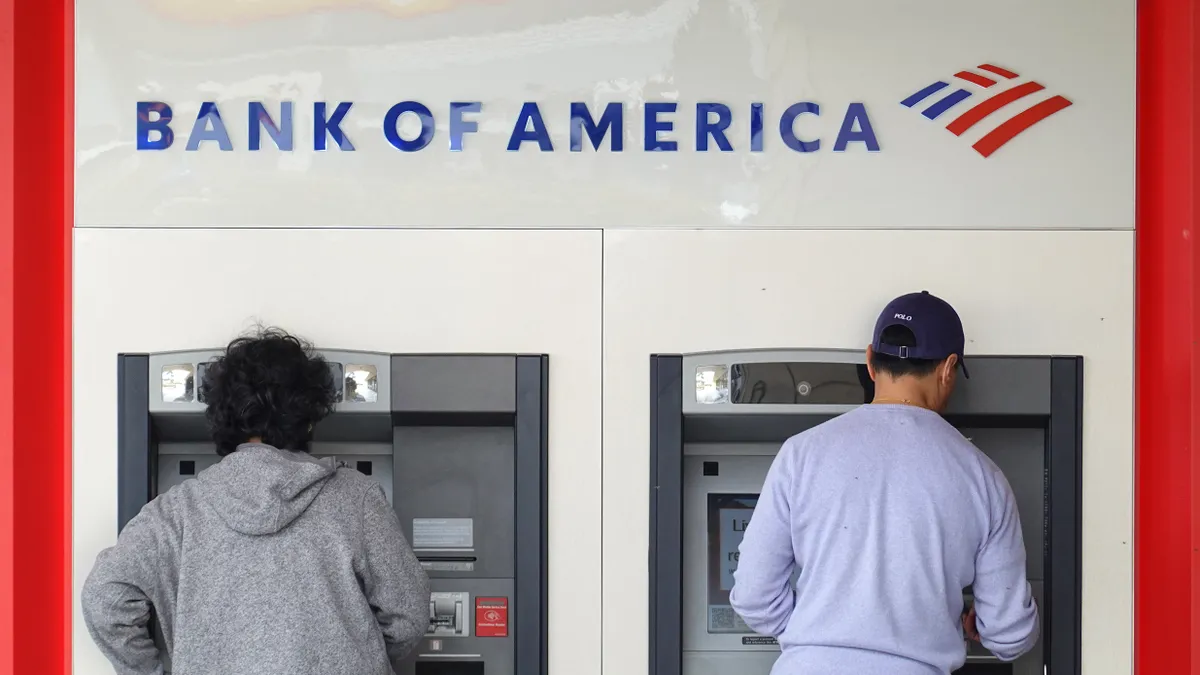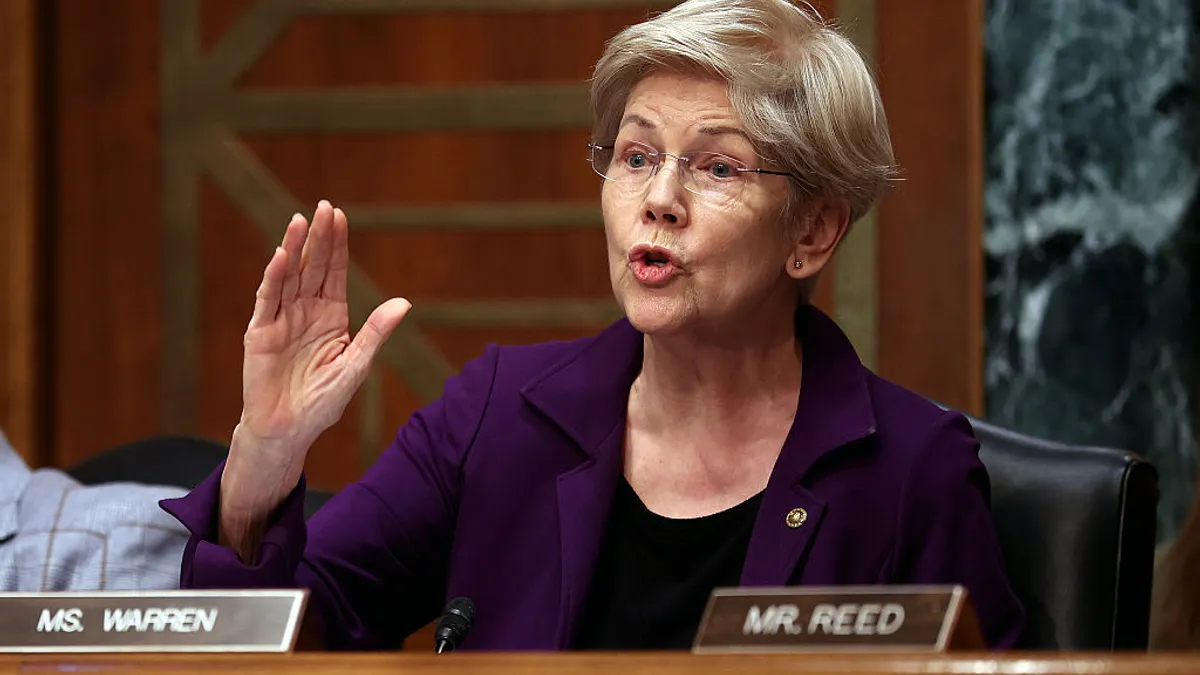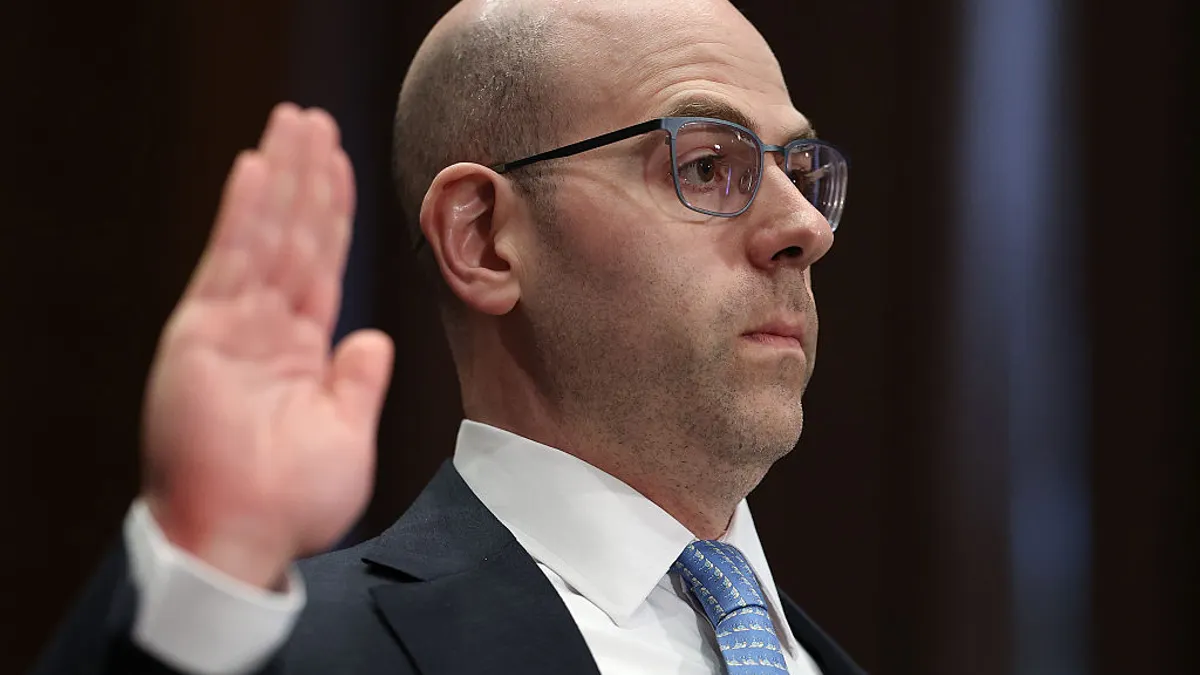The Consumer Financial Protection Bureau is extending by nearly a year the dates by which prolific small-business lenders must collect race, gender, LGBTQ status and demographic data from borrowers, the agency said in a notice published Wednesday in the Federal Register.
Institutions that originated at least 2,500 loans to small businesses over two years must comply with the small-business data collection rule by July 1, 2026, and submit their first set of data by July 1, 2027, according to the notice.
Those lenders had been on the hook to comply with the rule by July 18. But the CFPB cited three ongoing court challenges to the rule, noting that judges have stayed the compliance dates for plaintiffs and intervenors in those cases but not for other affected lenders.
The CFPB said it is extending the dates “to facilitate consistent compliance across all covered financial institutions.” But the agency, under the Trump administration, has shown a reluctance to embrace the rule, finalized in March 2023 under former Director Rohit Chopra.
The bureau in April told the U.S. District Court for the Southern District of Florida that it is “assessing” the small-business data collection rule with an eye toward retooling it, adding that it “anticipates issuing a Notice of Proposed Rulemaking as expeditiously as reasonably possible.” The CFPB repeated that point Wednesday.
Later in April, the bureau said it would not enforce the rule, noting it would “instead keep its enforcement and supervision resources focused on pressing threats to consumers, particularly servicemen and veterans.”
Republicans on the Senate Banking Committee this month suggested a longer delay for the rule, inserting a provision into the “One Big, Beautiful Bill” that would postpone compliance until 2034.
The CFPB is seeking comments for 30 days regarding the new proposed timeline for compliance. The extension should allow the bureau time “to issue a new proposal to reconsider certain aspects of the 2023 final rule,” it said.
Under Wednesday’s notice, lenders that originate at least 500 covered transactions over two years must comply with the rule by Jan. 1, 2027 (instead of Jan. 18, 2026). Meanwhile, lenders with at least 100 transactions in both years must comply by Oct. 1, 2027. Lenders can continue using 2022 and 2023 small-business loan origination data to determine the tier into which they fall, the CFPB said. They also may use 2023 and 2024, or 2024 and 2025, the bureau said.
The CFPB, in its notice, touted the financial benefit banks could see from the delay – namely, saving a year’s worth of compliance costs. The bureau also pointed to “more efficient fair lending review prioritization” as a further benefit.
This wouldn’t be the first timeline delay the rule has seen. Chopra last June extended the compliance deadline by 290 days. That mirrored the amount of time the small-business data collection rule was hung up in court — specifically, from the point at which a district judge in Texas partially blocked the rule in July 2023 until the Supreme Court in May 2024 ruled the CFPB’s funding structure constitutional.
The Texas judge later rejected plaintiffs’ claims that the CFPB is overstepping its authority with the data-collection rule.
“It may well be that the final rule proves ill-advised as a policy matter, but that possibility does not itself make the final rule unlawful,” Judge Randy Crane wrote last August.
But the rule is still being contended in the U.S. district courts for the Southern District of Florida, the Eastern District of Kentucky and the U.S. Court of Appeals for the Fifth Circuit.
Some Republican lawmakers in 2023 sought to kill the rule outright through the Congressional Review Act. Sen. John Kennedy, R-LA, argued the rule “perverts our intention of Section 1071 of the Dodd-Frank Act” – adding that it violates entrepreneurs’ privacy and would create a paperwork nightmare for lenders.
“[The CFPB] took our 13 pieces of information that we asked for, and they have expanded it to 81,” Kennedy said of the data to be collected. “All of a sudden, they want a book.”
The Senate and House each voted in favor of Kennedy’s resolution. But then-President Joe Biden vetoed the matter.
In another proposed rule headed for the Federal Register, the CFPB on Wednesday sought comment on a change to allocations of the Civil Penalty Fund – such that funds would no longer be put toward consumer education and financial literacy programs if victims cannot be located or payments are not practicable.


















